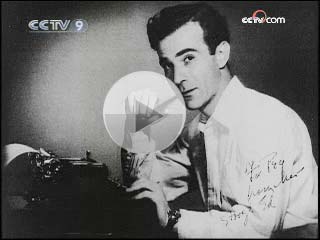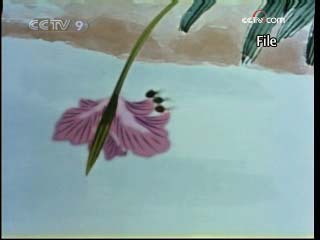------Program code: DO-090112-07683 (what's this?)
Source: CCTV.com
01-12-2009 12:37
 |
The news bulletin reveals that in 1972, there were some improvements on the market at Spring Festival. A number of new products were available for the first time.
The news bulletin also revealed that among the other popular products were vegetables, smoked meat, and wild game meat from Southern China. The children were especially interested in the new electric toys that were available in department stores during the holiday.
 |
To mark Spring Festival, People’s Daily published an article under the headline: “To Win a New Victory in Revolutionary Production and Celebrate the Spring Festival in High Spirits: the Capital’s Public Transport, Finance and Trade Workers Keep on Working”. The article reported that on Spring Festival eve, department stores and service centers across Beijing remained open, with the staff busy serving customers. At the Jianhua Food Store, in the capital’s industrial eastern suburbs, more sales staff than usual were working on Spring Festival eve, and the managers actually took their place at the counters to help serve customers. Late at night, a woman who had just left work was able to buy something. In a corner of the department store, water was boiling in a large pot on a stove, ready to heat up rice or cook noodles for the customers, who were workers, farmers and soldiers. People’s Daily stressed that this was the year when there was no longer any need to stress revolution and thrift at Spring Festival. Gradually, people were becoming aware that changes were happening in their lives, albeit quietly.
During the Spring Festival of 1972, a gala was organized for the army and people. However, this particular gala didn’t feature the usual entertainment. Instead the performances were of sports, including ping-pong and gymnastics.
At this time, Bing Xin and her husband Wu Wenzao were working on the translation of U.S. president Richard Nixon’s memoir, Six Crises. In the previous August, they had been recalled to Beijing from the May the 7th Cadre School in Shayang in Hubei Province, and put to work immediately at the translation office of the Central University for Nationalities. Despite working to an extremely tight deadline, Bing Xin and Wu Wenzao felt this was the most peaceful and relaxing time they had enjoyed since 1966, the year the Cultural Revolution broke out. Later, Bing Xin described her memories of those days: “We were all writing rapidly before each desk on the third floor of the Nationalities Study Office. Wenzao and I would arrive at the office at eight o’clock in the morning, go home for lunch at noon, then be back at the office at two o’clock in the afternoon, and finish work for the day at six o’clock in the evening. It was a stable and worthwhile period in our lives.” After the translation of Six Crises was completed, Bing Xin and Wu Wenzao, along with Fei Xiaotong, began to translate H.G. Wells’ ‘The Outline of History’, and other foreign books about history. Such assignments gave Bing Xin and Wu Wenzao the sense that Sino-U.S. relations were undergoing a subtle change.
By the third year of the 1970s, the western industrial powers were entering a period of economic depression, and the U.S. dollar was steadily losing value. The Vietnam War was continuing, as was the Cold War between the U.S. and the Soviet Union. Confronted with anti-war protests in the U.S., President Nixon published his “Eight Points”, in which he set out the way to achieve peace in Vietnam and Indo-China.
People’s Daily responded to Nixon’s Eight Points with a critical article. It said that the U.S. had no intention of making peace; rather, it was planning the long-term occupation of southern Vietnam.
Even so, China was quietly preparing for a visit by President Nixon.
